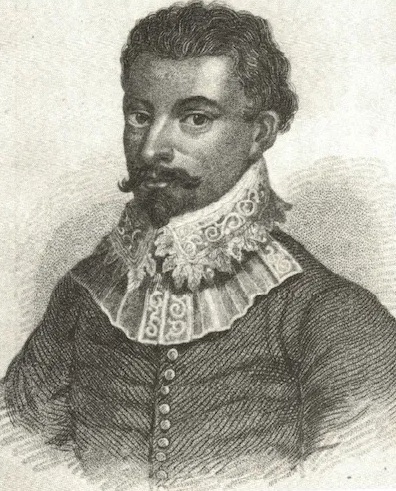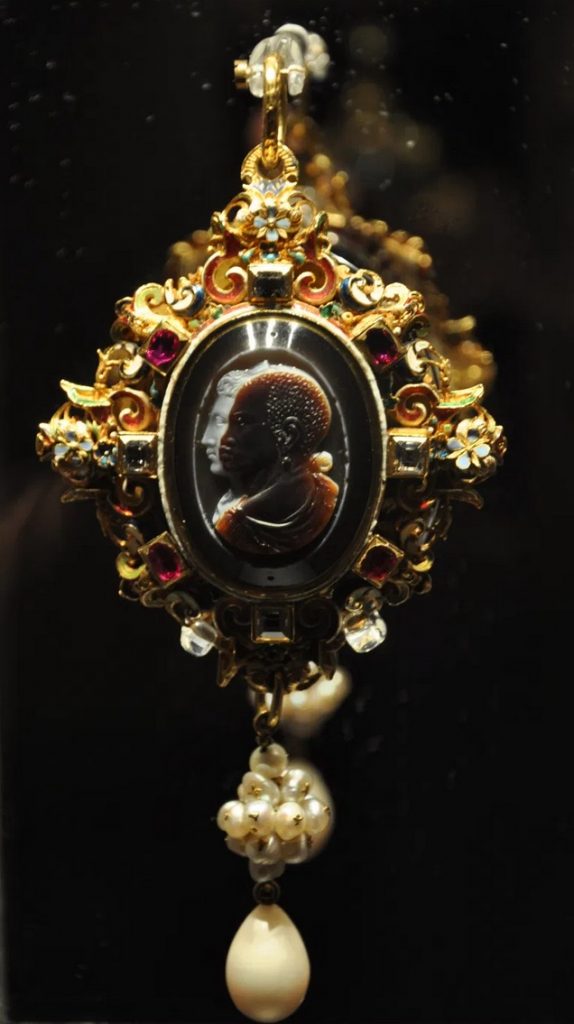Was Sir Francis Drake A Black Man?
Grace and peace, Saints.
They say that history is written by the winners; and we know that though history books may say one thing, often the truth is far different. The marginalized segments of any society are almost never fairly represented in the historical record, as they are rarely–if ever–called on to give their version of events. This is true with many peoples and ethnic groups, but, arguably, no race or ethnic group has been more misrepresented in the historical record than the Negro. Hannibal, the Carthaginian general, is a good example. Most sources say Hannibal Barca was white, but ancient coins depict Hannibal as a black man. It is also an historical fact that after the Roman general, Scipio defeated Hannibal, he was given the surname Africannus, which would seem to support the contention that Hannibal was Black.
Then there is the curious case of Sir Francis Drake. Drake was an English admiral, adventurer, and navigator, who is considered “the greatest and most famous of Elizabethan seamen.” Drake is credited with some of the greatest victories in British naval history. Most portraits of Drake, such as the one below, portray him as a white man:

This, however, is an image of Sir Francis Drake taken from the Illustrated Dictionary of World History, Vol. 1, p. 394:

The Encyclopedia Brittanica describes Drake as being “of medium stature, blonde, rather heavy than slender, merry, careful” (p. 626); but this photo clearly contradicts that description. Intrigued, I googled “Sir Francis Drake Black” and “Sir Francis Drake Negro” and was surprised that Drake’s ethnicity has been called into question by others, though not many. I also found this interesting photo of a famous jewel said to have been given to Drake by Queen Elizabeth I, which he was said to have worn hanging from his belt.

The jewel clearly features a black man and what appears to be a white woman. I was not at all surprised to learn that though the jewel is well known in England, few seem to question whether the black man may be Drake himself. One article, in fact, said that the man could not be Drake because he is clean-shaven! Another article, written by an English freelance historian, said that the black man on the Blake Jewel, “has been interpreted as a symbol of Drake’s alliance with the Cimaroons,” African slaves who had run away from their Spanish captors. The article did not, however, question whether the black man could possibly be Drake.
There are two possible reasons why few question if Drake were black. The first reason is obvious. For the British, Drake is a national hero, and stories of his deeds of daring have excited the imagination of Britons for centuries. So famous and influential was Drake that it is said that he “founded the British naval tradition.” For many, it would be a hard pill to swallow if it turned out that Drake was, in fact, black.
The second reason is not so obvious today, but would have been in Drake’s day. According to the Encyclopedia Brittanica, Sir Francis Drake “inherited an ardent Protestantism” from his father, who was a preacher. Drake served his entire career under the Protestant Queen Elizabeth I, who was succeeded by King James I, also a Protestant. King James, as you may know, was responsible for the Authorized Version of the Bible. Protestantism allows a person to excel regardless of race, color, creed, or station, and Drake is a prime example. Even for a white man, his accomplishments and meteoric rise to the upper echelons of British society were extraordinary, given that Drake was not from the upper class, but was, in fact, of very humble stock.
Drake had been very successful in defending Protestant England against her mortal foe, Roman Catholic Spain; so it is not hard to imagine that during the reigns of Queen Elizabeth and King James, history would have been very kind to Drake. But, alas, England eventually fell at the feet of the Pope, where it remains prostrate until this day. Considering the damage he inflicted on Spain’s “Invinsible Armada,” Drake no doubt incurred the undying enmity of the Vatican. If he were black, therefore, it is highly likely that that fact would be all but forgotten by historians, a great many of whom just happen to be Roman Catholic.
Be encouraged and look up, for your redemption draweth nigh.
TSM
Sources:
Encyclopedia Brittanica, vol. vii, 1966.
The Illustrated Dictionary of World History, by Harry Abrams, vol. i, 1975.
I never actually gave it much thought; not even being a former “sailor” myself. Most of our American naval traditions were adopted from British naval traditions, early on since most of our sailors were of British extract at the beginning; whether English, Irish or Scot. And since those play to the sea, and seamanship for the most part, are fairly common among fleets around the world, in fact, although each adds touches of its own that play to nationalism as well. Whether Drake was black or white shouldn’t MATTER at all; what he DID, should be what’s important.
Whether Drake was black or white obviously does matter, Sandra, at the very least to those who have gone through the trouble to hide his true ethnicity (if it is true that he was black). Truth always matters, Sarah, no matter how unimportant that truth may be to some or all. Since the foundation of the world, people have tried to disregard the importance of truth. The earliest recorded instance of this is when Satan called into question God’s truthfulness, asking Eve, “Yea hath God said?.” And who can forget Pontius Pilate famously asking Jesus, “And what is Truth?”
Truth always matter, as even in court, when a witness is sworn in, he is asked to swear or affirm that any testimony he provides will be “The Truth, the whole Truth, and nothing but the Truth.” Why? Because the Bible says, “No lie is of the Truth,” and our justice system was founded on the Bible.
If Drake’s true ethnicity does not matter to you, that is understandable; but, if the historical record has been tampered with in this regard, then that should matter to anyone who values Truth. Because “no lie is of the Truth.”